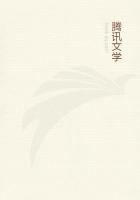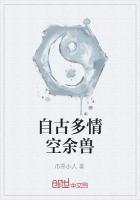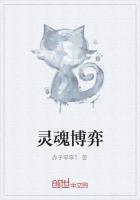It only made matters worse. I didn't know how I felt -- I -- well, I felt as if I was as good a man as Jack Drew -- I -- you see I've -- you might think it soft -- but I loved that girl, not as I've been gone on other girls, but in the old-fashioned, soft, honest, hopeless, far-away sort of way; and now, to tell the straight truth, I thought I might have had her. You lose a thing through being too straight or sentimental, or not having enough cheek; and another man comes along with more brass in his blood and less sentimental rot and takes it up -- and the world respects him; and you feel in your heart that you're a weaker man than he is. Why, part of the time I must have felt like a man does when a better man runs away with his wife.
But I'd drunk a lot, and was upset and lonely-feeling that night.
"Oh, but Redclay had a tremendous sensation next day! Jack Drew, of all the men in the world, had been caught in the act of robbing the bank.
According to Browne's account in court and in the newspapers, he returned home that night at about twelve o'clock (which I knew was a lie, for I saw him being helped home nearer two) and immediately retired to rest (on top of the quilt, boots and all, I suppose). Some time before daybreak he was roused by a fancied noise (I suppose it was his head swelling); he rose, turned up a night lamp (he hadn't lit it, I'll swear), and went through the dining-room passage and office to investigate (for whisky and water). He saw that the doors and windows were secure, returned to bed, and fell asleep again.
"There is something in a deaf person's being roused easily.
I know the case of a deaf chap who'd start up at a step or movement in the house when no one else could hear or feel it; keen sense of vibration, I reckon. Well, just at daybreak (to shorten the yarn) the banker woke suddenly, he said, and heard a crack like a shot in the house.
There was a loose flooring-board in the passage that went off like a pistol-shot sometimes when you trod on it; and I guess Jack Drew trod on it, sneaking out, and he weighed nearly twelve stone.
If the truth were known, he probably heard Browne poking round, tried the window, found the sash jammed, and was slipping through the passage to the back door. Browne got his revolver, opened his door suddenly, and caught Drew standing between the girl's door (which was shut) and the office door, with his coat on his arm and his boots in his hands.
Browne covered him with his revolver, swore he'd shoot if he moved, and yelled for help. Drew stood a moment like a man stunned; then he rushed Browne, and in the struggle the revolver went off, and Drew got hit in the arm. Two of the mounted troopers -- who'd been up looking to the horses for an early start somewhere -- rushed in then, and took Drew. He had nothing to say. What could he say? He couldn't say he was a blackguard who'd taken advantage of a poor unprotected girl because she loved him. They found the back door unlocked, by the way, which was put down to the burglar; of course Browne couldn't explain that he came home too muddled to lock doors after him.
"And the girl? She shrieked and fell when the row started, and they found her like a log on the floor of her room after it was over.
"They found in Jack's overcoat pocket a parcel containing a cold chisel, small screw-wrench, file, and one or two other things that he'd bought that evening to tinker up the old printing press.
I knew that, because I'd lent him a hand a few nights before, and he told me he'd have to get the tools. They found some scratches round the key-hole and knob of the office door that I'd made myself, scraping old splashes of paint off the brass and hand-plate so as to make a clean finish. Oh, it taught me the value of circumstantial evidence!
If I was judge I wouldn't give a man till the `risin' av the coort' on it, any more than I would on the bare word of the noblest woman breathing.
"At the preliminary examination Jack Drew said he was guilty.
But it seemed that, according to law, he couldn't be guilty until after he was committed. So he was committed for trial at the next Quarter Sessions. The excitement and gabble were worse than the Dean case, or Federation, and sickened me, for they were all on the wrong track. You lose a lot of life through being behind the scenes. But they cooled down presently to wait for the trial.
"They thought it best to take the girl away from the place where she'd got the shock; so the Doctor took her to his house, where he had an old housekeeper who was as deaf as a post -- a first class recommendation for a housekeeper anywhere.
He got a nurse from Sydney to attend on Ruth Wilson, and no one except he and the nurse were allowed to go near her. She lay like dead, they said, except when she had to be held down raving; brain fever, they said, brought on by the shock of the attempted burglary and pistol shot.
Dr. Lebinski had another doctor up from Sydney at his own expense, but nothing could save her -- and perhaps it was as well.
She might have finished her life in a lunatic asylum.
They were going to send her to Sydney, to a brain hospital; but she died a week before the Sessions. She was right-headed for an hour, they said, and asking all the time for Jack. The Doctor told her he was all right and was coming -- and, waiting and listening for him, she died.
"The case was black enough against Drew now. I knew he wouldn't have the pluck to tell the truth now, even if he was that sort of a man.
I didn't know what to do, so I spoke to the Doctor straight. I caught him coming out of the Royal, and walked along the road with him a bit.
I suppose he thought I was going to show cause why his doors ought to have another coat of varnish.
"`Hallo, Mitchell!' he said, `how's painting?'
"`Doctor!' I said, `what am I going to do about this business?'
"`What business?'
"`Jack Drew's.'
"He looked at me sideways -- the swift haunted look. Then he walked on without a word, for half a dozen yards, hands behind, and studying the dust.
Then he asked, quite quietly:
"`Do you know the truth?'
"`Yes!'
"About a dozen yards this time; then he said:















